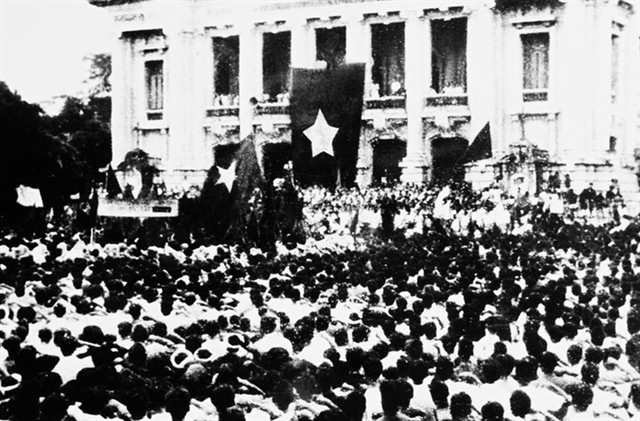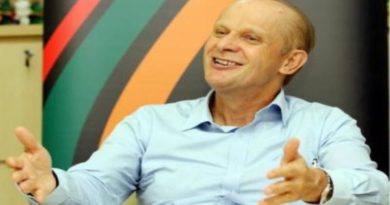HISTORY-FLASH BACK: HA NOI Viet Nam- Reflections on a revolution
.
By Thu Hà
.
At the age of 94, Lê Đức Vân is no longer at his best, with a hunched back and deteriorating health. But when it comes to moments of glory from more than seven decades ago, he still remembers every single detail.
Vân (whose real name is Nguyễn Hữu Phúc) was among the key people behind the historic August 1945 Revolution in Hà Nội, a major landmark in modern Vietnamese history that helped shape what the country is today. It formally marked the end of colonialism and led to the declaration of national independence on September 2 the same year.
Back then, Vân was a member of the Hoàng Diệu Citadel National Salvation Youth Brigade, a group of patriotic young men and women in Hà Nội operating under the leadership of the Việt Minh (League for the Independence of Việt Nam).
“The group was established in August 1944 at 46 Bát Đàn Street, with 60 founding members,” Vân recalled. “It originated from a student activist group that we founded a couple of years earlier, when we were still students at the Bưởi High School.”
.


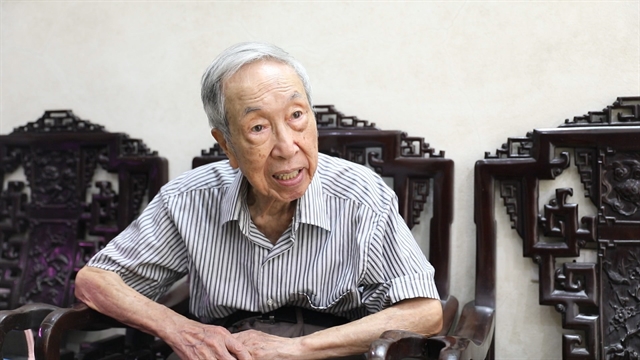
.


Despite having a French-influenced education, Vân and his schoolmates were nonetheless inspired by a teacher named Nguyễn Khang, who through history lessons instilled patriotism in all of his students.
“We founded a group called Ngô Quyền, after the national hero who defeated Southern Han Chinese invaders more than a thousand years ago,” he said.
In 1941, Nguyễn Ái Quốc (the alias at that time of President Hồ Chí Minh) returned to Việt Nam and founded the Việt Minh, to mobilise patriots for the revolutionary cause of seeking independence for Việt Nam from French colonialism.
After hearing of the Việt Minh and its policies through some older schoolmates, Vân and his friends asked to join and soon became part of a professional and organised group fighting for national independence.
“Our main job at the National Salvation Youth Brigade was to introduce the Việt Minh and its policies to others, in the hope of igniting people’s patriotism and attracting others to the group and the revolutionary cause through activities like handing out newspapers, leaflets and posters, or holding meetings and giving speeches.”
.


.


“Everything was done secretly to avoid being caught. We were divided into groups of three, reporting every activity to a leader further up the ladder. Each person only knew of his or her group’s members. This was to avoid any break-up of the movement if members were caught and began talking.”
“At one point, after the leader of our group was arrested by the French, a friend and I had to leave our families to take refuge in the countryside.”
From a group of students, the national salvation brigade quickly expanded to include young people from all walks of life.
.


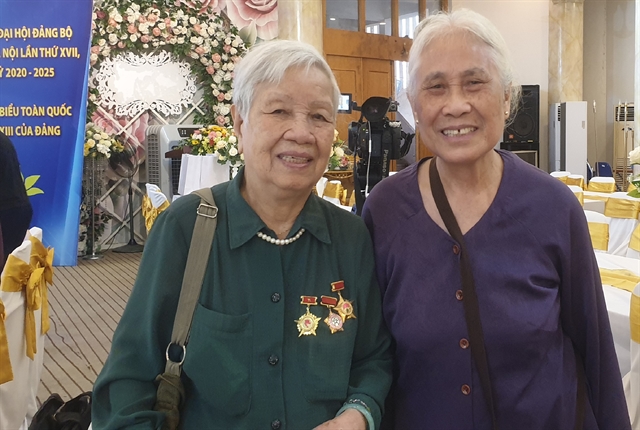
.


Phạm Thị Hiền, now 91, joined the group in late 1944 at the age of 16.
“I was living with my family on what is now Đại Cổ Việt Street,” she remembered. “I didn’t go to school, instead staying at home to help my father with the family business. Everyone was poor. We all hated the foreign occupation and loved our country. Then one of my brothers told me to join the organisation.”
“My role was to go to public spaces and scatter patriotic leaflets around. We went out in a group. One person would create a distraction as others completed the task.”
Just like Vân, everything Hiền did was secret, even to her family.
“My two brothers and my sister were also members of revolutionary groups, but none of us knew what the others were doing,” she remembered.
.


Turning point
On March 9, 1945, Japan toppled the French in Việt Nam and founded a puppet government under its direct control, marking a turning point in the country’s revolution.
Taking advantage of the ensuing confusion, the Việt Minh strengthened its power in preparation for a general uprising. The Hoàng Diệu Citadel National Salvation Youth Brigade continued to organise activities to increase people’s support for the Việt Minh and provoke anxiety among those working for the French and then the Japanese.
“On August 17, the puppet government held a major meeting of public servants in front of the Opera House,” Vân recalled. “We were ordered to turn it into our own meeting, and call on people to support the Việt Minh.”
“Three of our members were tasked with taking the floor and gave speeches calling on everyone to follow the Việt Minh and stage a general uprising. Other members stood among the crowd waving the red flag with yellow star of the Việt Minh.
“People were chanting everywhere,” he continued. “I heard ‘Support the Việt Minh’, ‘Independent Việt Nam’. Lê Chi, the youngest member of our team, brought along a yellow star red flag. In the stirring atmosphere, he raised the flag and shouted ‘Fellow compatriots, follow me’. And people followed him.”
It wasn’t meant to be a demonstration, he explained, but it just kept growing and became tens of thousands of people moving around the centre of the city.
“We went from Tràng Tiền to Đồng Xuân Market, and then Phan Đình Phùng Street,” he said. “More and more people joined us. Even police officers working for the authorities joined us. The crowd was only dispersed into smaller groups when we came to Cửa Nam Street at about 7pm.”
.


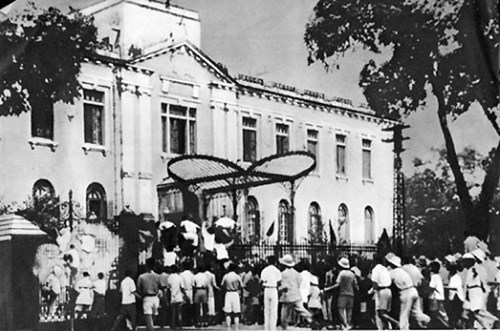
Hiền, meanwhile, was among a group of people who went from the Opera House to protest in front of the Tonkin Palace, the headquarters of the Japanese-backed government.
“We were standing outside the fences and chanting,” she recalled. “If they had opened fire, I would have died that day. But I wasn’t at all scared.
An urgent meeting was held that night of different revolutionary forces, to discuss the general uprising given the latest developments. Vân was the representative of the Hoàng Diệu Citadel National Salvation Youth Brigade.
“There were nine participants, including Hà Nội Party Secretary Nguyễn Quyết and officers from the regional party committee.
“It was decided to launch a general uprising in Hà Nội on August 19, to capitalise on the growing enthusiasm.”
Vân went on: “When August 19 came, a huge public gathering was held at the Opera House. Youth and workers’ self-defence forces protected the crowd. And from there we went to seize important offices of the puppet government.
“I was responsible for the uprising on the city’s outskirts, and after that went to join the uprising downtown.
“Nguyễn Quyết led the Hoàng Diệu youth union to take over the security protection force. Nguyễn Khang and the workers’ self-defence force seized the Tonkin Palace, the headquarters of the puppet government. Everything was completed by noon.”
The revolution in Hà Nội ended without bloodshed, setting off a general uprising across the country that led to the birth of the Democratic Republic of Việt Nam.
On September 2, 1945, when President Hồ Chí Minh read the Declaration of Independence in front of tens of thousands of people at Ba Đình Square, members of the Hoàng Diệu Citadel National Salvation Youth Brigade were assigned the important task of protecting the podium where the President and other key officials were standing.
Looking back on those historic days, Hiền said she was overwhelmed with happiness.
“We felt united and that we were escaping enslavement,” she said. “We had become citizens of an independent country.”
Just like Hiền and everyone else involved, Vân takes great pride in having devoted his life to the nation.
“I feel happy because I achieved the goals I aspired to, through so many tough years,” he said.
“We finally gained our independence. I consider it my achievement to have contributed a little to where the nation is today.” — VNS
.


SIGN UP TO RECEIVE OUR EMAIL
.
The most important news of the day about the ASEAN Countries and the world in one email: [email protected]
8.30.2020

